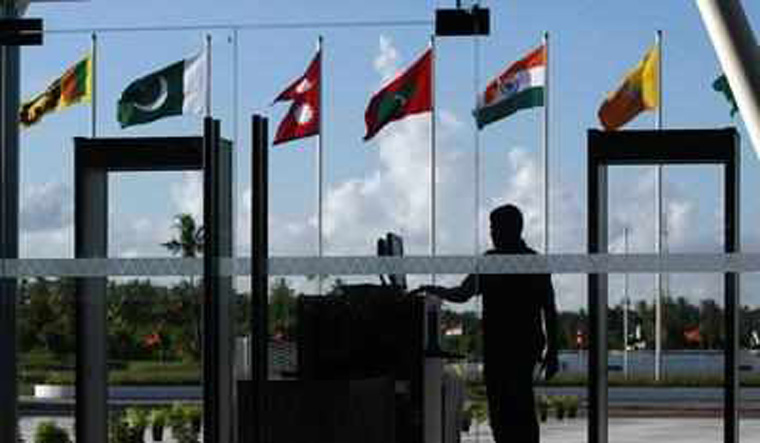“The much-delayed 19th South Asian Association for Regional Cooperation (SAARC) Summit to be held in Islamabad soon. SAARC foreign ministers meet in New York agrees, in principle. Pakistan to convey the dates. SAARC to finally move forward.''
This is the message that Pakistan's foreign office has put out. However, given the theatrics at the recent SAARC foreign ministers' meet in New York, the “in principle” agreement doesn't seem likely to become a reality anytime soon.
The meeting was held on the sidelines of the United Nations General Assembly meet. External Affairs Minister S. Jaishankar and Pakistan's Foreign Minister Shah Mehmood Qureshi boycotted the speeches of each other at the meet. Qureshi did not enter the meeting until Jaishankar had spoken, and the latter left immediately after his speech.
Jaishankar, in his address, spoke about India's outreach under its 'neighbourhood first' policy , elaborating on the role India had taken for itself in “sharing the fruits of its economic, scientific and technological progress with the South Asian community''. He cited the example of the South Asian University, the South Asian Satellite and the SAARC Disaster Management Centre in Gujarat which has trained 350 people in the last two years. He also spoke of the training programmes in agriculture and disaster management India has organised. The minister elaborated on the National Knowledge Network extension to neighbours like Sri Lanka, Bhutan and Bangladesh.
However, he emphasised that SAARC was not just a story of “missed opportunities but also of deliberate obstacles. Terrorism is among them.'' Recalling that the 18th summit in Kathmandu had agreed upon full and effective implementation of SAARC Regional Convention on suppression of terrorism, he said the relevance of SAARC would be determined by actions against terrorism and “this will decide our collective journey for the future becoming more productive.''
Also read
- Pak responsible for derailing SAARC; not going to discuss India-Pak relations: Jaishankar on SCO Summit
- OPINION: Rajiv Gandhi secured stability in South Asia, Modi should revive Saarc
- Pakistan accuses India of making SAARC dysfunctional, New Delhi undecided on attending summit
- Imran hopes to host SAARC Summit once ‘artificial obstacle’ is removed
- India to host SAARC secretary general, but is it ready to re-energise the group?
The message was clear, and an oft repeated one. That unless Pakistan shows by its actions that it has moved against terrorism emanating from its soil, India sees no future in engaging with the neighbour in any regional forums. The 19th SAARC summit was to be held in Islamabad in November 2016, but India opted out of it following the terror attack in Uri. Other member nations also exited in solidarity, causing a huge embarrassment for the host nation.
In the last three years, India has been giving its 'neighbourhood first' policy a big push, but carefully eliminating Pakistan from the equation. India has begun to look east, and has began according more importance to the other regional grouping, BIMSTEC, of which Pakistan is not a member. BIMSTEC heads were invited to the swearing-in of the new government this summer.
Following the Pulwama attack, India launched the Balakot air strikes, which further worsened the relations with Pakistan. With Pakistan is trying to rake up the Kashmir issue following India's decision to abrogate Article 370, there does not seem to be a thaw in relationships anytime soon.
Jaishankar had, in his first public address as minister in July, noted that the SAARC grouping had problems even if one sets aside the terror trouble. Poor connectivity and trade issues are obstacles in SAARC. With BIMSTEC, on the other hand, he said, India saw energy and a common vision.
Pakistan, however, is keen to host the SAARC Summit.



